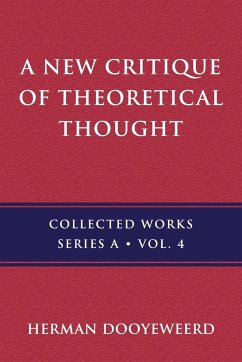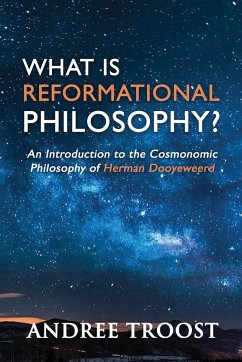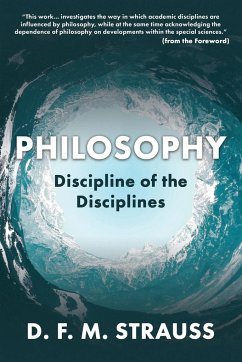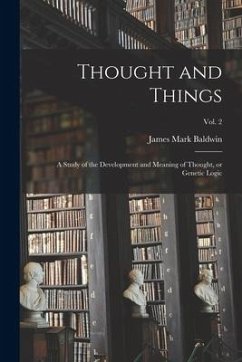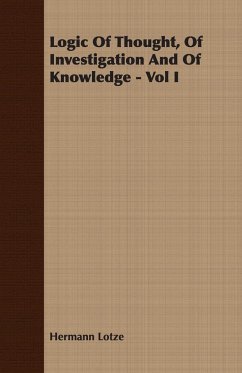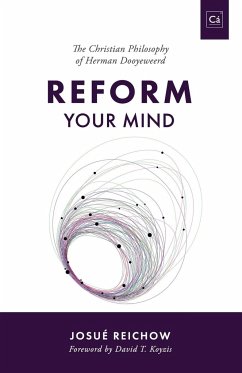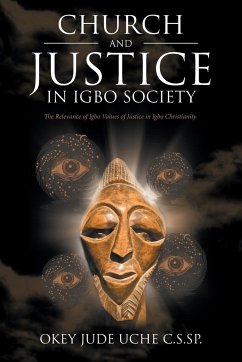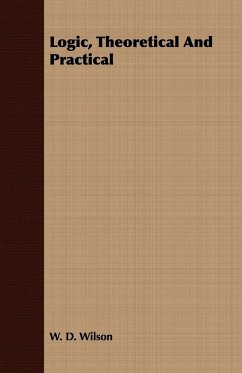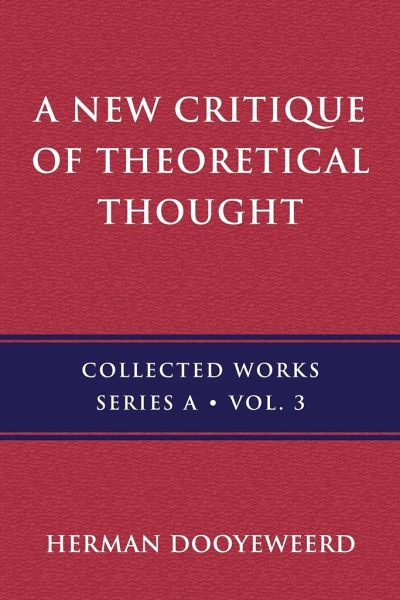
A New Critique of Theoretical Thought, Vol. 3
Versandkostenfrei!
Versandfertig in 1-2 Wochen
31,99 €
inkl. MwSt.

PAYBACK Punkte
16 °P sammeln!
"Highly esteemed Mr. Dooyeweerd: yours is the great merit to have seen that today we can no longer philosophize, as was still possible in the so-called modern era, without answering the question - or at least raising it - in what way philosophy and Christianity relate to each other. Today we know all too well that all philosophizing takes place against the background of a culture that in essential respects is determined by its religion, even in its anti-religious voices and moods or in its seemingly indifferent discussions and argumentation. The period in which philosophy and religion marched ...
"Highly esteemed Mr. Dooyeweerd: yours is the great merit to have seen that today we can no longer philosophize, as was still possible in the so-called modern era, without answering the question - or at least raising it - in what way philosophy and Christianity relate to each other. Today we know all too well that all philosophizing takes place against the background of a culture that in essential respects is determined by its religion, even in its anti-religious voices and moods or in its seemingly indifferent discussions and argumentation. The period in which philosophy and religion marched separately (or claimed that they could and should do so) is gone." Richard Kroner, Professor of Philosophy, University of Kiel



